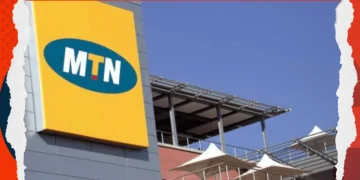Major telecom operators across Africa have joined forces to bring internet access to 50 million people through affordable $30 smartphones and locally-built AI language models. The initiative, announced at MWC25 Kigali, addresses two critical barriers that have kept millions of Africans offline despite extensive mobile coverage.
The GSMA and six of Africa’s largest mobile operators, Airtel Africa, Axian Telecom, Ethio Telecom, MTN, Orange, and Vodacom revealed their strategy during the three-day conference that concluded this week. President Paul Kagame of Rwanda opened the event, emphasizing the urgent need for policy reforms to accelerate digital transformation across the continent.
Mobile Economy Drives $220 Billion into African GDP
Africa’s mobile sector already contributes $220 billion to the continent’s economy, representing 7.7% of GDP in 2024. The newly released GSMA Mobile Economy Africa 2025 Report shows this figure will reach $270 billion by 2030, supporting 8 million jobs directly and indirectly.
Despite this economic impact, a massive gap exists between coverage and usage. While mobile broadband coverage reaches 95% of Africa’s population, 960 million people still don’t use mobile internet services. Sub-Saharan Africa accounts for 790 million of these unconnected users.
“Africa has the talent and ambition, but reforms on affordability, AI and energy are essential to drive inclusive growth,” said Angela Wamola, Head of Africa at GSMA. The organization identified three urgent priorities: handset affordability, inclusive AI language models, and energy resilience.
RELATED: Africa’s Mobile Giants Partnered to Build AI That Speaks Local Languages
$30 Smartphones Target 50 Million New Users
The handset affordability crisis represents the single biggest barrier to internet adoption across Sub-Saharan Africa. Current smartphone penetration remains below 50% in the region, compared to over 95% in developed economies.
The proposed baseline requirements establish minimum standards for memory, RAM, camera quality, display size, and battery life. These specifications ensure affordable 4G smartphones deliver reliable, long-lasting performance for users who cannot afford premium devices.
GSMA Intelligence research shows a $40 smartphone could connect 20 million additional people, while a $30 device could extend access to 50 million users. The coalition now works with device manufacturers and technology companies to refine specifications and support large-scale production.
African governments play a crucial role in this initiative. The coalition urges the removal of taxes and import duties on entry-level smartphones priced below $100, levies that add over 30% to consumer costs. South Africa recently eliminated such taxes, setting an example other nations should follow.
“Access to a smartphone is not a luxury, it is a lifeline to essential services, income opportunities and participation in the digital economy,” said GSMA Director General Vivek Badrinath.
African Languages Get AI Breakthrough
The second major initiative addresses Africa’s representation in artificial intelligence through locally developed language models. Currently, leading AI systems support only a handful of global languages, leaving Africa’s 2,000+ languages largely underrepresented in digital systems.
The “AI Language Models in Africa, By Africa, For Africa” collaboration brings together mobile operators, research institutions, and AI companies including the African Population for Health Research Center, Masakhane African Languages Hub, Lelapa AI, and Pawa AI.
A feasibility study conducted by GSMA confirmed that African-led language models are both technically feasible and economically viable. However, success requires collective investment across four areas: data, compute infrastructure, talent development, and supportive policies.
These locally-trained AI models will power applications tailored to African realities, from customer service and education to healthcare and public service delivery. The initiative plans to strengthen digital sovereignty and ensure African cultures and knowledge shape the global AI future.
Energy Infrastructure Remains Critical Challenge
The third priority addresses Africa’s energy access crisis, which directly impacts digital transformation. More than 80% of the world’s unelectrified population lives in Africa, creating a foundational barrier to mobile connectivity and digital services.
Ministers and regulators met at the GSMA Ministerial Programme to explore alignment between national energy and digital connectivity planning. Without reliable power, communities cannot fully benefit from mobile services, digital applications, or broadband expansion.
Operators will invest $77 billion in new networks between 2024 and 2030, with revenues expected to reach $79 billion by 2030. However, this infrastructure requires stable energy systems to deliver consistent service to users.
Policy Reforms Drive Digital Inclusion
MWC25 Kigali emphasized the critical role of policy reforms in accelerating digital transformation. The three-day event brought together industry leaders, government officials, and technology innovators to align strategies for inclusive growth.
The initiatives announced represent coordinated efforts to address systemic barriers rather than fragmented approaches. Success depends on collaboration between operators, governments, device manufacturers, and technology providers.
The $30 smartphone initiative and AI language model development create a foundation for digital inclusion. As more Africans gain affordable internet access through locally-relevant AI services, the continent can build stronger digital economies and reduce global technology gaps.
These developments position Africa to shape its digital future rather than simply adopt technologies designed elsewhere. The combination of affordable connectivity and culturally-relevant AI services could transform how millions of people access education, healthcare, financial services, and economic opportunities.














